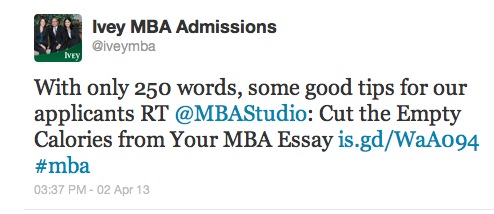I try to keep this MBA Admissions blog fresh and personal (like an MBA essay should be!) and don’t just rehash or repost keyword-rich MBA admissions news. In this spirit I offer you a bit of whimsey from The Wall Street Journal “Speakeasy” where Teddy Wayne explains how his job as an MBA essay editor provided the inspiration for his novel Kapitoil.
He says:
“Of the many jobs I held during my desultory postgraduate days in the early 2000s, the one that made the deepest impression was editing MBA application essays for a Web site. For two and a half years, I downloaded essays from strangers, made comments and suggestions, copyedited grammatical errors and uploaded them without any human contact. It wasn’t very rewarding work — but it did help inspire my debut novel, Kapitoil.”
So here’s insight number one. Dare I point out that if you go the big-MBA-admissions-consulting-shop route, this is the kind of person who is reviewing your essays. The business model is: your work is outsourced to unemployed graduates in the arts and humanities. These editors may not be empowered to have interactive contact with you, and they may not be highly motivated. (Yes, there are exceptions.)
Anyway, Wayne goes on to his main point:
“The applicants’ knowledge of business jargon was deeper than my own. Everything was “leveraged”; “skill sets” were “broadened”; they were all striving to achieve “short-and long-term objectives.”
“What if, I began thinking, I wrote a novel from the perspective of a character who, like these business-school aspirants, was so immersed in the language of late capitalism, so caught up in its buzzwords and phrasings, that he not only wrote and spoke in it, but thought in it?”
… “We all do it, consciously or not. Friends who are low-paid writers speak about how “at the end of the day,” “the bottom line” is that we have to “touch base” and reach for the “low-hanging fruit.”
“The language of commerce has now fully cemented itself in our vernacular, functioning the way sports, military, mafia and street slang has in the past: as a shorthand for when we’re too unimaginative or lazy to come up with original sentences.”
Here’s insight number two. Adcom members are as sensitive to business jargon as Wayne is, and view it in an equally dim light. Read Kapitoil. Have a laugh. But don’t talk like that in your MBA essays or interview.

